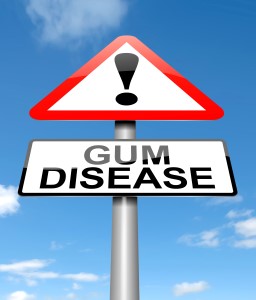Wisdom Teeth Removal: Reduce the Risk of Gum Disease

Impacted wisdom teeth can cause a host of problems, and that motivates many patients to have their third molars removed even if they’re not experiencing any symptoms.
Because it is difficult to keep the rearmost portion of the mouth clean, bacteria can collect along the gums that surround impacted or partially erupted wisdom teeth. Therefore, by having an oral surgeon extract those wisdom teeth, you may actually be able to reduce your risk for gum disease.
Those bacteria can attack the gum tissue and cause inflammation that compromises the attachment between the gum and the tooth. The gums can become red or swollen or bleed in milder cases, or pockets may form or the gum tissue may recede in more severe forms of gum disease. The most advanced stages of gum disease can result in tooth and bone loss.
However, when the impacted wisdom teeth are removed, it eliminates that gathering spot for bacteria, so the chances that you will get gum disease in the vicinity decrease.
Impacted wisdom teeth are susceptible to other issues, such as cysts, tumors, infections, and abscesses, so having them removed reduces those risks, as well.
Wisdom tooth extraction is performed in an outpatient setting, allowing patients to rest and recuperate in the comfort of their own homes. Most patients are back to their normal routines within a matter of days after the procedure. Your oral surgeon will give you detailed instructions to lower your chances of post-operative complications, such as dry sockets, which can extend your treatment timeline.
Of course, there are certain risks (albeit uncommon ones) associated with any oral surgery. Your surgeon also will have a thorough discussion of the risks and benefits of a wisdom tooth extraction with you to ensure that you are making an informed decision about this procedure.
Additionally, it is recommended that patients pursue wisdom tooth extraction before age 25, as the procedure is more straightforward and recovery shorter in younger patients. If you are older, you may still be able to have the procedure, but your surgeon can discuss specifics with you.
Patients gain numerous benefits – including a reduction in their risk of developing gum disease – from having their wisdom teeth removed preventively. Talk to one of our knowledgeable practitioners at Stonebriar Facial & Oral Surgery about these outcomes and about the procedure itself.
